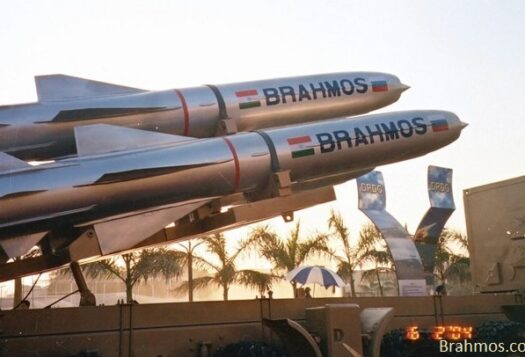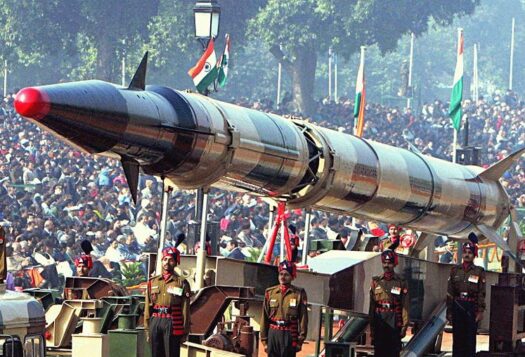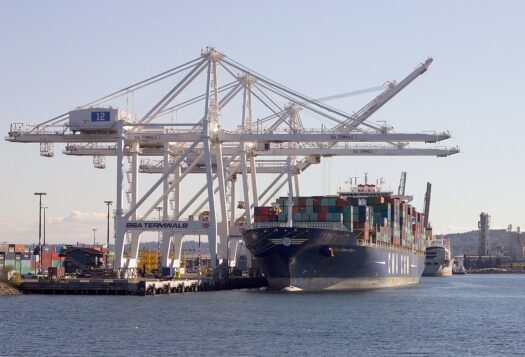In the aftermath of an attack on the Indian Air Force base in Pathankot, allegedly by Pakistan-based terrorist organization Jaish-e-Muhammad, South Asia watchers worried once again: would this latest incident trigger a crisis between the two nuclear-armed neighbors in the region, as many have in the past? The postponement of foreign secretary level talks prompted DC-based think-tank the United States Institute of Peace to convene a panel last week to discuss these issues. Panelists and South Asia specialists Daniel Markey, Edward Wittenstein, Polly Nayak, and moderator Moeed Yusuf explored past India-Pakistan crises and what the U.S. role has been in defusing them. The discussion afforded an opportunity to compare and contrast American perspectives on crisis management in South Asia, represented by the panelists, with those from India and Pakistan.
The panelists were asked to address four prompts: a) changes in the India-Pakistan relationship since the 2008 Mumbai attacks, b) differences between U.S. ability to do crisis management and dispute resolution, c) prospects for India-Pakistan ties going forward, and d) prescriptions for U.S. role in such crises in future.
Daniel Markey argued that the U.S. “tilt” towards India has become “more pronounced” while relations with Pakistan have deteriorated since the Osama bin Laden raid, stating that “by and large, the [United States-Pakistan] relationship is worse than it was even at the time of Mumbai.” He cited the constructive role of China in Afghanistan and Pakistan as another big change, contending that “China’s enhanced ambition as a regional diplomatic partner” may mean it will assume a “leadership role” in the next Indo-Pak crisis. Polly Nayak also spoke about the importance of China in future, flagging Beijing’s positive diplomatic role in the Twin Peaks as well as Mumbai crises. She said that Beijing had privately been “quite firm” with Islamabad on terrorism, making the claim that China even considered voting in the United Nations Security Council on banning certain Pakistan-based terror groups.
Many of these views from Washington are echoed by Pakistani analysts as well. Amina Afzal has argued that President Obama’s preference for India has made it “more difficult for his administration to be inclusive” in the region. Hamzah Rifaat reached the same conclusion as Markey about the state of United States-Pakistan relations in his piece about U.S. drone policy. Mohammad Daim Fazil also noted China’s more expansive role in regional matters recently, such as the Afghan peace talks.
On the other hand, Markey’s argument about “no discernible change” in Pakistan’s attitude towards terror groups targeting India will resonate in New Delhi. Recent efforts by Pakistan such as intelligence-sharing over an alleged attack in Gujarat have been appreciated in India, but terrorism remains at the top of New Delhi’s agenda for talks with Islamabad.
With regard to U.S. ability to resolve disputes between India and Pakistan, Markey contended that just like in the past, the United States will not be “particularly helpful” in this venture going forward. This, he argued, is because “India and Pakistan are inclined to play the United States” if it tries to mediate, and thus U.S. efforts generally prove to be a distraction from the actual dispute. Also, other areas of U.S. concern with respect to India and Pakistan often trump their disputes. Finally, Markey posits that the challenge of Kashmir is less about a solution and more about convincing the polities of the two countries to accept a solution—something the United States cannot help with. Edward Wittenstein, who was the staff liaison for the 2008 crisis at the U.S. embassy in Mumbai, also wondered if U.S. diplomacy had truly been successful, because steps taken then have now been reversed—e.g. Zakiur Rehman Lakhvi, the mastermind of the Mumbai 2008 attack, was released on bail in 2015. He and Nayak were both of the view that direct U.S. involvement may not always be impactful or helpful.
On this issue, the perspectives in Washington overlap more with New Delhi than Islamabad. As many contributors such as Reshmi Kazi have reasoned, India considers Kashmir to be a bilateral issue and would not appreciate U.S. involvement in resolving that dispute, whereas Islamabad has consistently urged the international community to play a role. By contrast, in crises, New Delhi has often relied on Washington to relay its concerns to Islamabad, as Tridivesh Singh Maini points out, and pressurize Pakistan to act. New Delhi, however, is not always satisfied with U.S. support, indicated by Washington failing to extradite David Headley, accused of planning the 2008 Mumbai attacks.
The main challenge for India and Pakistan going forward, as Nayak observed, is to deal with an America that may be unable or unwilling to mediate in a crisis. This could push New Delhi and Islamabad to see value in devising bilateral crisis management mechanisms. It could also mean that players such as China may step in to assume the traditional U.S. role as crisis manager in the region. According to Markey, Washington should therefore engage Beijing on regional diplomacy in South Asia. Nayak further suggests that the United States encourage India and Pakistan to take the lead on calling for dialogue during a crisis, without waiting for Washington to push for it.
-Akriti Vasudeva
***
SAV IN DC relates analysis by SAV contributors to Washington DC-based discussions of South Asian strategic affairs.


